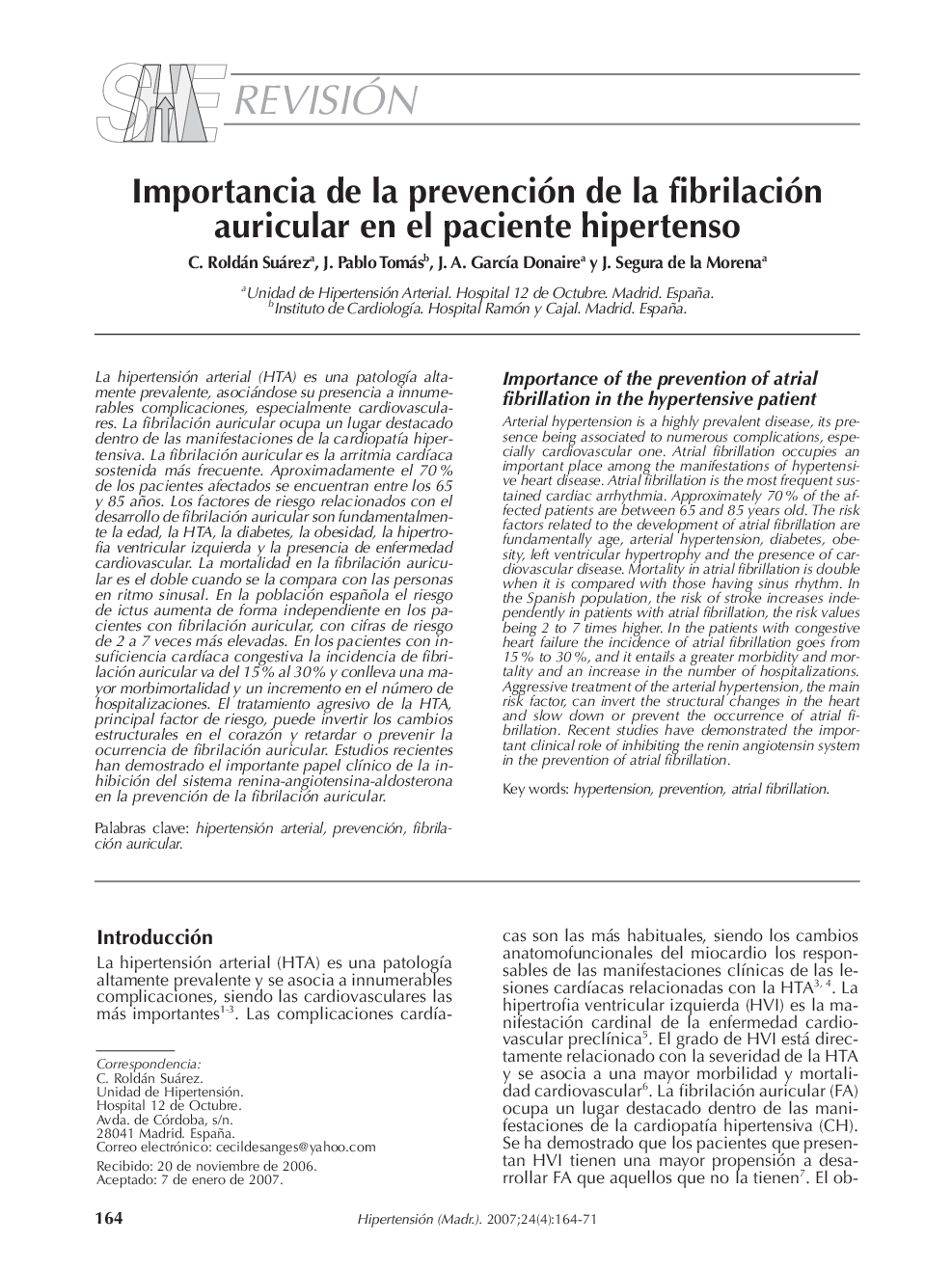| Article ID | Journal | Published Year | Pages | File Type |
|---|---|---|---|---|
| 2926088 | Hipertensión | 2007 | 8 Pages |
Abstract
Arterial hypertension is a highly prevalent disease, its presence being associated to numerous complications, especially cardiovascular one. Atrial fibrillation occupies an important place among the manifestations of hypertensive heart disease. Atrial fibrillation is the most frequent sustained cardiac arrhythmia. Approximately 70% of the affected patients are between 65 and 85 years old. The risk factors related to the development of atrial fibrillation are fundamentally age, arterial hypertension, diabetes, obesity, left ventricular hypertrophy and the presence of cardiovascular disease. Mortality in atrial fibrillation is double when it is compared with those having sinus rhythm. In the Spanish population, the risk of stroke increases independently in patients with atrial fibrillation, the risk values being 2 to 7 times higher. In the patients with congestive heart failure the incidence of atrial fibrillation goes from 15% to 30%, and it entails a greater morbidity and mortality and an increase in the number of hospitalizations. Aggressive treatment of the arterial hypertension, the main risk factor, can invert the structural changes in the heart and slow down or prevent the occurrence of atrial fibrillation. Recent studies have demonstrated the important clinical role of inhibiting the renin angiotensin system in the prevention of atrial fibrillation.
Keywords
Related Topics
Health Sciences
Medicine and Dentistry
Cardiology and Cardiovascular Medicine
Authors
C. Roldán Suárez, J. Pablo Tomás, J.A. GarcÃa Donaire, J. Segura de la Morena,
